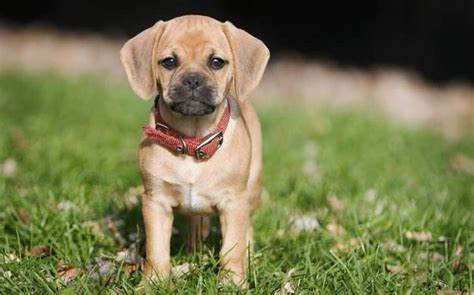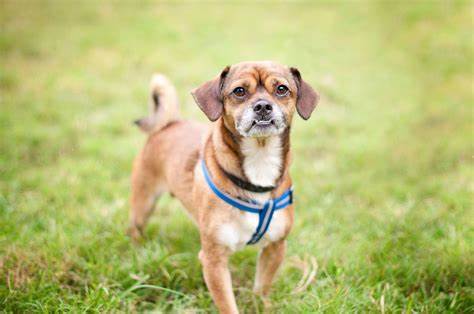
Mixed breed dogs—often referred to as mutts, mongrels, or crossbreeds—are dogs of unknown or combined ancestry, resulting from the natural or unplanned mating of different dog breeds. Unlike purebred dogs, they do not have a standardized lineage or consistent physical traits. Mixed breeds have existed as long as dogs have lived alongside humans and make up a significant portion of the global dog population.
Historically, mixed breed dogs have filled crucial roles as working animals, guardians, and loyal companions. In recent years, public appreciation has grown for their diversity, resilience, and charm—bolstered by widespread advocacy from shelters and rescue organizations encouraging adoption over shopping.
Mixed breed dogs are the most common type of dog worldwide. In many countries, including the United States, mixed breeds make up the majority of dogs found in homes, shelters, and rescues. They are admired for their individuality, unpredictable looks, and often greater genetic diversity.
Some designer crossbreeds (like Labradoodles or Goldendoodles) are intentionally bred and marketed, but true mixed breed dogs typically come from unplanned pairings, resulting in a unique blend of traits.
Due to their diverse genetic makeup, mixed breed dogs come in all shapes, sizes, coat types, and colors. Each one is unique!
Coat:
• Can be short, long, wiry, curly, or anything in between
• Shedding level varies by ancestry
Color:
• All colors and combinations possible, including patterns like brindle, merle, or spotted
Size:
• Anywhere from tiny to giant
• Weight and height often reflect the parentage, but can be unpredictable
Head & Expression:
• Varies greatly—may have traits from one or both parents or even resemble neither
Ears & Tail:
• May stand up, droop, curl, or do a bit of both
• Tails can be curled, long, docked, feathered, or thick
Body Type:
• Muscular, lean, stocky, or athletic—any combination is possible
Mixed breed dogs, like purebreds, have personalities shaped by genetics, environment, and training. Their behavior often reflects the blend of breeds in their lineage, though each individual will have a unique temperament.
Friendly and Adaptable:
• Many mixed breeds are sociable and eager to bond with their humans
• Adapt well to different living situations
Intelligent and Trainable:
• Often highly trainable and quick to learn when positive reinforcement is used
Loyal and Affectionate:
• Develop strong bonds with family members and may be deeply devoted
• Often grateful and loving, especially when adopted from shelters
Balanced Temperament:
• Mixed genes may balance extreme behavioral traits, making for a well-rounded dog
Protective or Reserved:
• Depending on ancestry, may show watchdog tendencies or be wary of strangers

Unique Look and Personality:
• No two are alike—owning a mixed breed is like having a one-of-a-kind treasure
Adoption-Friendly:
• Many are adopted from shelters or rescues, giving a dog in need a second chance at life
Lower Risk of Genetic Disorders:
• Greater genetic diversity may reduce risk of inherited health issues found in some purebred lines
Budget-Friendly:
• Typically less expensive to acquire and maintain than purebred dogs
Strong and Resilient:
• Often physically hardy and well-adapted to various lifestyles
Training:
• Early training and socialization help bring out the best in your dog’s personality
• Use positive reinforcement, patience, and consistency
Exercise:
• Varies by size and energy level
• Observe your dog’s behavior to tailor activity needs (from couch potato to marathon runner)
Grooming:
• Coat type determines grooming routine—some need daily brushing, others minimal care
• Professional grooming may be helpful depending on coat texture
Nutrition:
• Feed a balanced diet appropriate to size, age, and activity level
• Monitor weight, especially in unknown mixes where metabolism may vary
Companionship:
• Thrive with love, attention, and a sense of belonging
• Many adjust well to kids, other pets, or apartment life when properly cared for

While mixed breed dogs may have fewer breed-specific health issues, it’s still important to provide regular veterinary care and monitor their well-being.
Common health concerns include:
• Dental issues (especially in small mixes)
• Obesity if overfed or under-exercised
• Joint problems (hip/elbow dysplasia in larger mixes)
• Allergies or sensitive skin
• Age-related illnesses like arthritis or vision loss
Consider DNA testing if you're curious about your dog’s ancestry or potential health predispositions.
While purebreds offer predictability in appearance and temperament, mixed breeds offer individuality and often greater flexibility. Mixed breeds are less likely to exhibit extreme breed traits and can be well-balanced, easygoing pets.
Compared to breeds like the Labrador Retriever or Golden Retriever, mixed breed dogs can be just as loyal and trainable, with the added benefit of unique characteristics that set them apart.
A mixed breed dog is perfect for individuals or families looking for a loyal, loving, and unique companion. If you value personality over pedigree and want to provide a home to a dog in need, a mixed breed could be your perfect match.
Best For:
• First-time dog owners
• Families, singles, or seniors
• Those who want to adopt rather than shop
Not Ideal For:
• People seeking a show-quality or highly specialized working dog
• Those who need consistent breed-specific traits
United Pet Club can connect you with adoption resources, shelter recommendations, and expert guidance on caring for your one-of-a-kind pup. From understanding your dog’s needs to providing the right products and support, we’re here to help you and your new best friend thrive.